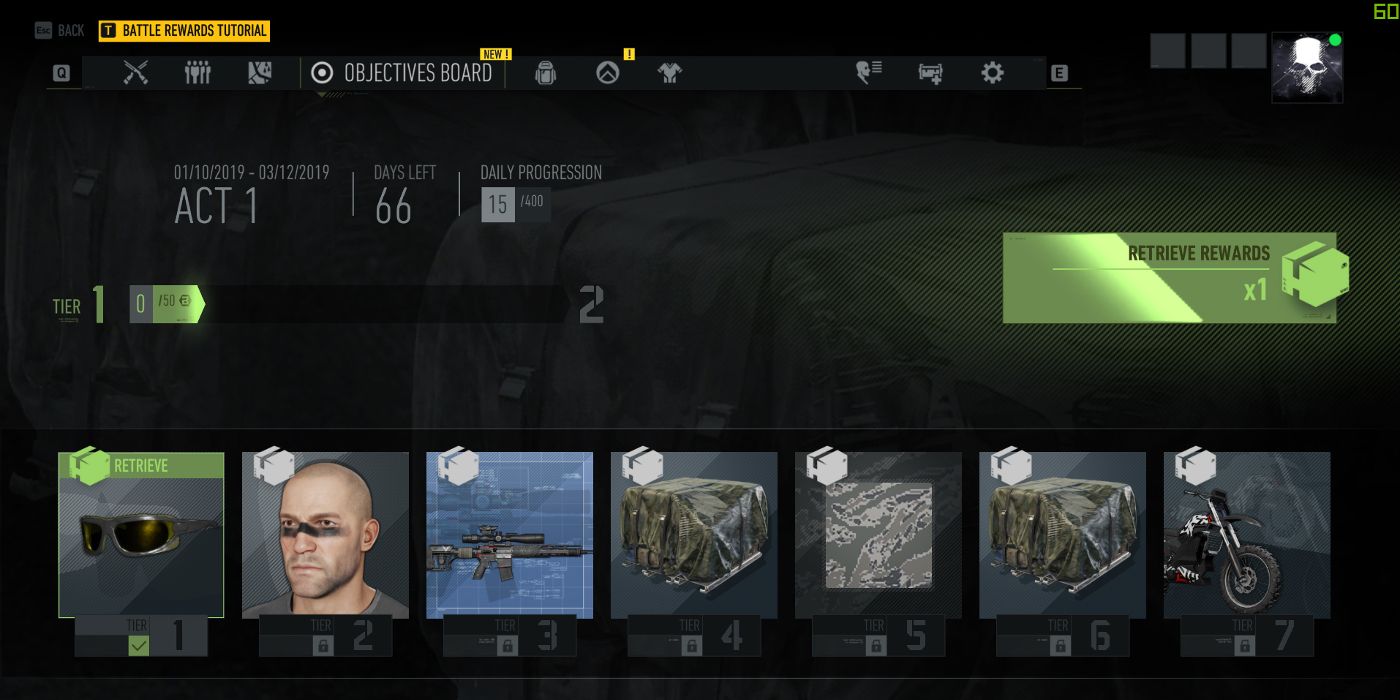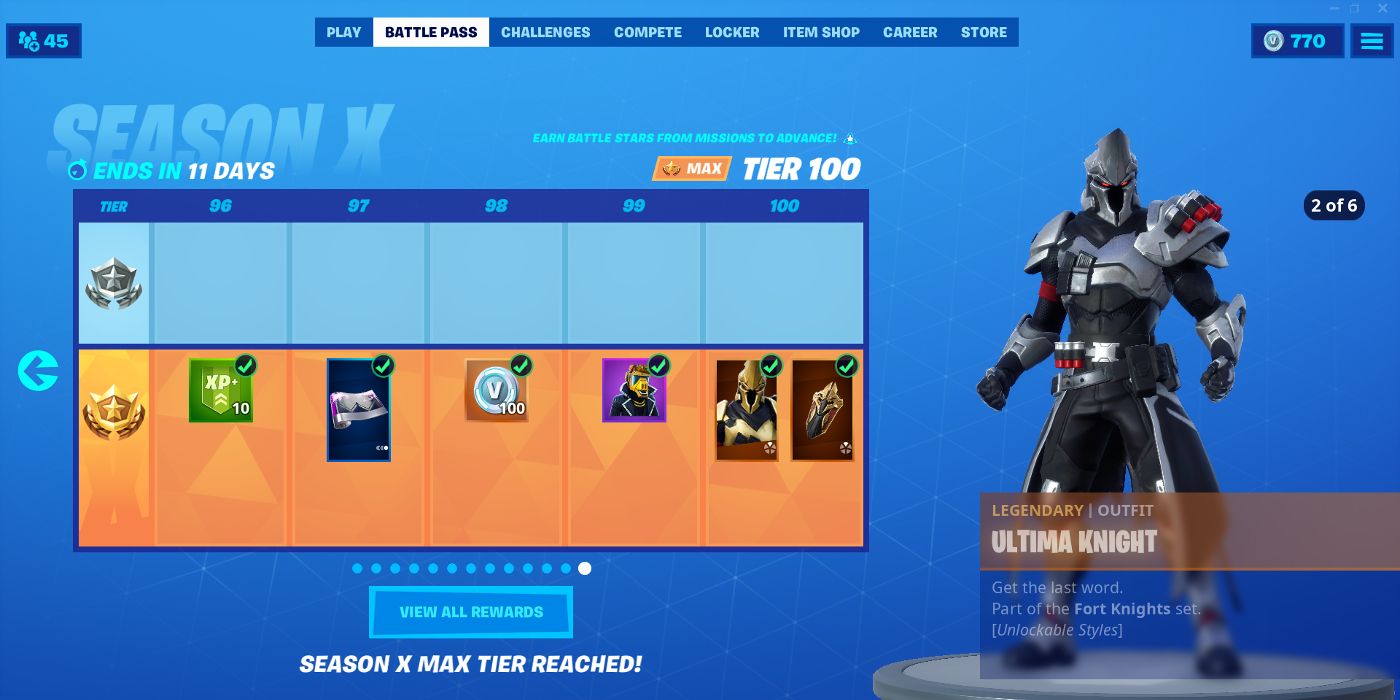Listen up, AAA publishers: not every single game needs a battle pass. Some publishers are guiltier than others of chasing the current trends powering the live-service money train, but they all need to understand that the ridiculous proliferation of this system is exhausting and runs the risk of burning out dedicated players.
The battle pass system has risen to prominence with game publishers over the last two years, and already its ubiquity in seemingly every major online release has washed away all of the novelty and gratitude that players first regarded it with when Fortnite brought it into the mainstream. Intended as an alternative to the widely hated loot box system of gambling and duplicates, battle passes were initially a way for free-to-play titles to allow paying players to opt into a subscription-like service every season for special unlocks. Simultaneously, it allowed a greater number of low- or non-paying players to keep the servers populated for premium VIPs, all the while teasing free players with the swanky prospects of what an upgrade could bring. However, as evidenced by Ghost Recon: Breakpoint's launch snafu over time-savers, players care about how the games they play are monetized, and these moneymaking systems aren't one-size-fits-all.
For many gamers, the tipping point came when the market was flooded with full-price games sporting their own versions of the battle pass seemingly overnight. Worse, they were often lumped in with an untold number of other unsavory monetization tactics - including loot boxes, the very thing the battle pass system was meant to replace! Now, Rainbow Six Siege is getting a battle pass to further pad its seasons, joining the ranks of Call of Duty: Black Ops 4, Destiny 2, PlayerUnknown's Battlegrounds, and an evidently never-ending list of titles that already have or likely will bolster their revenue streams with battle passes. Though not all of these battle pass copycats are created equal (in fact, some, like Rocket League's Rocket Pass, are quite forthcoming with free unlocks), they all share one trait in common: they strip out or pave over traditional progression systems in fun multiplayer games and transmogrify them into jobs that demand all of a player's free time.
That rings true for all battle pass implementations, but they're normally easier to stomach in free-to-play games for obvious reasons. It's hardly a slap in the face to players who can't flaunt the coolest cosmetic items when they may have invested little to nothing in a game's ecosystem. That said, the often experimental nature of what new battle passes will bring within free-to-play titles also leaves lots of room for culpable developers to outrage their playerbases, with Epic Games' delay of Fortnite's Season 11 and breakages of previous battle pass promises highlighting the system's potential unreliability. Additionally, there's always the chance that a battle pass's contents might just suck, as was the case for Apex Legends's first attempt at it, or that developers like Valve may feel emboldened to use them to lock long-requested quality-of-life fixes behind a paywall.
Although battle passes aren't an inherent evil, publishers should make no mistake that players who aren't already fed up with their over saturation will likely be getting there soon. Post-launch revenue is yet another checkbox companies are obligated to address in order to maybe please over-expectant shareholders, but it should go without saying that beating players over the head with trends isn't the answer. Perhaps, though, just one AAA publisher could give selling content the old-fashioned way a try.


